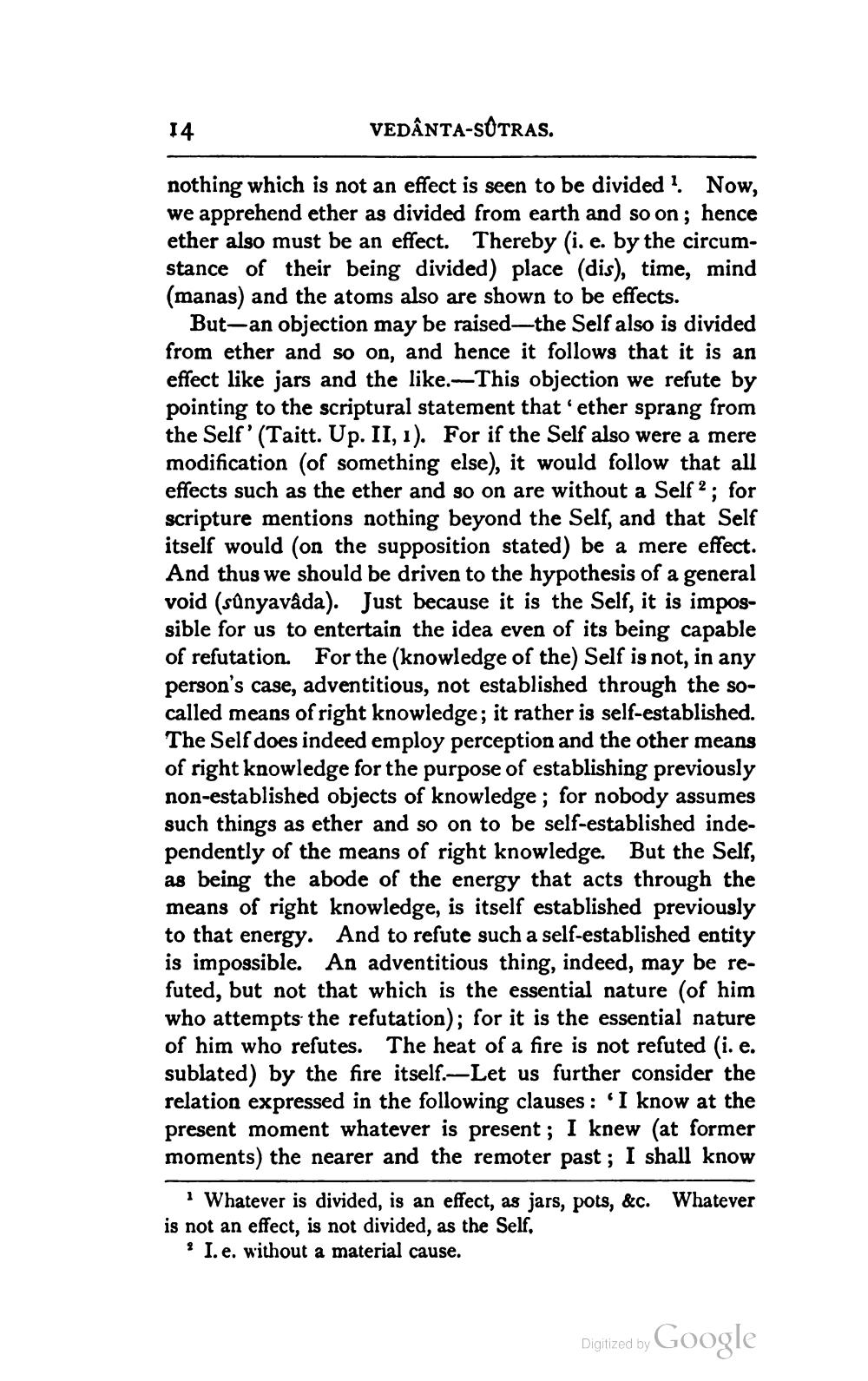________________
14
VEDÂNTA-SOTRAS.
nothing which is not an effect is seen to be divided ! Now, we apprehend ether as divided from earth and so on; hence ether also must be an effect. Thereby (i. e. by the circumstance of their being divided) place (dis), time, mind (manas) and the atoms also are shown to be effects.
But-an objection may be raised—the Self also is divided from ether and so on, and hence it follows that it is an effect like jars and the like. This objection we refute by pointing to the scriptural statement that'ether sprang from the Self' (Taitt. Up. II, 1). For if the Self also were a mere modification of something else), it would follow that all effects such as the ether and so on are without a Self?; for scripture mentions nothing beyond the Self, and that Self itself would (on the supposition stated) be a mere effect. And thus we should be driven to the hypothesis of a general void (sünyavada). Just because it is the Self, it is impossible for us to entertain the idea even of its being capable of refutation. For the (knowledge of the Self is not, in any person's case, adventitious, not established through the socalled means of right knowledge; it rather is self-established. The Self does indeed employ perception and the other means of right knowledge for the purpose of establishing previously non-established objects of knowledge ; for nobody assumes such things as ether and so on to be self-established independently of the means of right knowledge. But the Self, as being the abode of the energy that acts through the means of right knowledge, is itself established previously to that energy. And to refute such a self-established entity is impossible. An adventitious thing, indeed, may be refuted, but not that which is the essential nature (of him who attempts the refutation); for it is the essential nature of him who refutes. The heat of a fire is not refuted (i. e. sublated) by the fire itself.-Let us further consider the relation expressed in the following clauses : 'I know at the present moment whatever is present; I knew (at former moments) the nearer and the remoter past ; I shall know
Whatever is divided, is an effect, as jars, pots, &c. Whatever is not an effect, is not divided, as the Self,
? I. e. without a material cause.
Digitized by
Digilzed by Google




